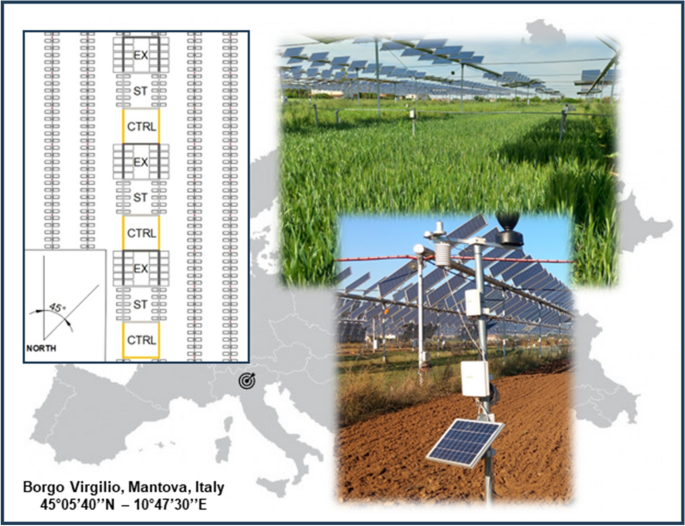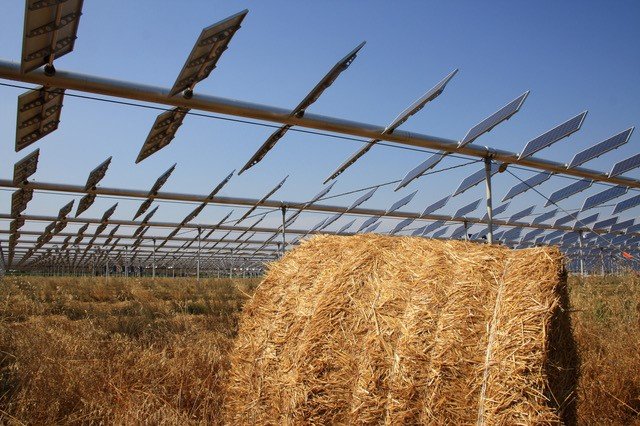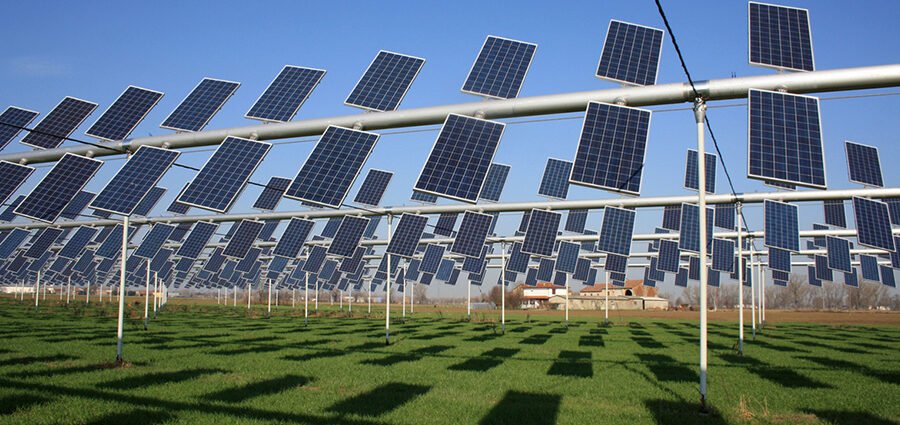A new Italian study investigated how overhead solar panels (agrivoltaics) impact the quality of wheat grown beneath them. The research, conducted by a team from the CNR Institute for Bioeconomy, the University of Florence, and REM Tec srl, took place over two years (2022-2023) on a 11.4-hectare wheat field in Borgo Virgilio, Mantua.

The agrivoltaic system used 7,680 solar panels mounted on trackers at a height of 4.5 meters, covering a total area of 1.3 hectares. The researchers divided the field into sections with varying degrees of shade: three sections with 12% ground cover (GCR) and three with 41% GCR. Three unshaded sections served as controls.
While wheat yields decreased under the panels, the impact varied depending on the shade level. At the lower shade level (13% GCR), the yield reduction was minimal during the grain maturation stage. However, with the higher shade (41% GCR), yields dropped by 29.6%. Interestingly, the reduced sunlight also affected plant height, which in turn influenced the quality of the wheat straw as animal feed.

The team analyzed various parameters in the wheat biomass, including dry matter content, protein fractions, fiber content, and digestibility. Their findings suggest that shade alters the protein and fiber composition of the wheat, potentially impacting its suitability for ruminant animals.

The researchers plan to further validate their results with additional experiments in 2024. This study offers valuable insights into the potential trade-offs between solar energy production and agricultural output within agrivoltaic systems. While shade may reduce wheat yields, it could also enhance the nutritional value of the straw for livestock feed.
Reference- PV Magazine Italy, Journal Agroforestry Systems, National Geographic, BBC






